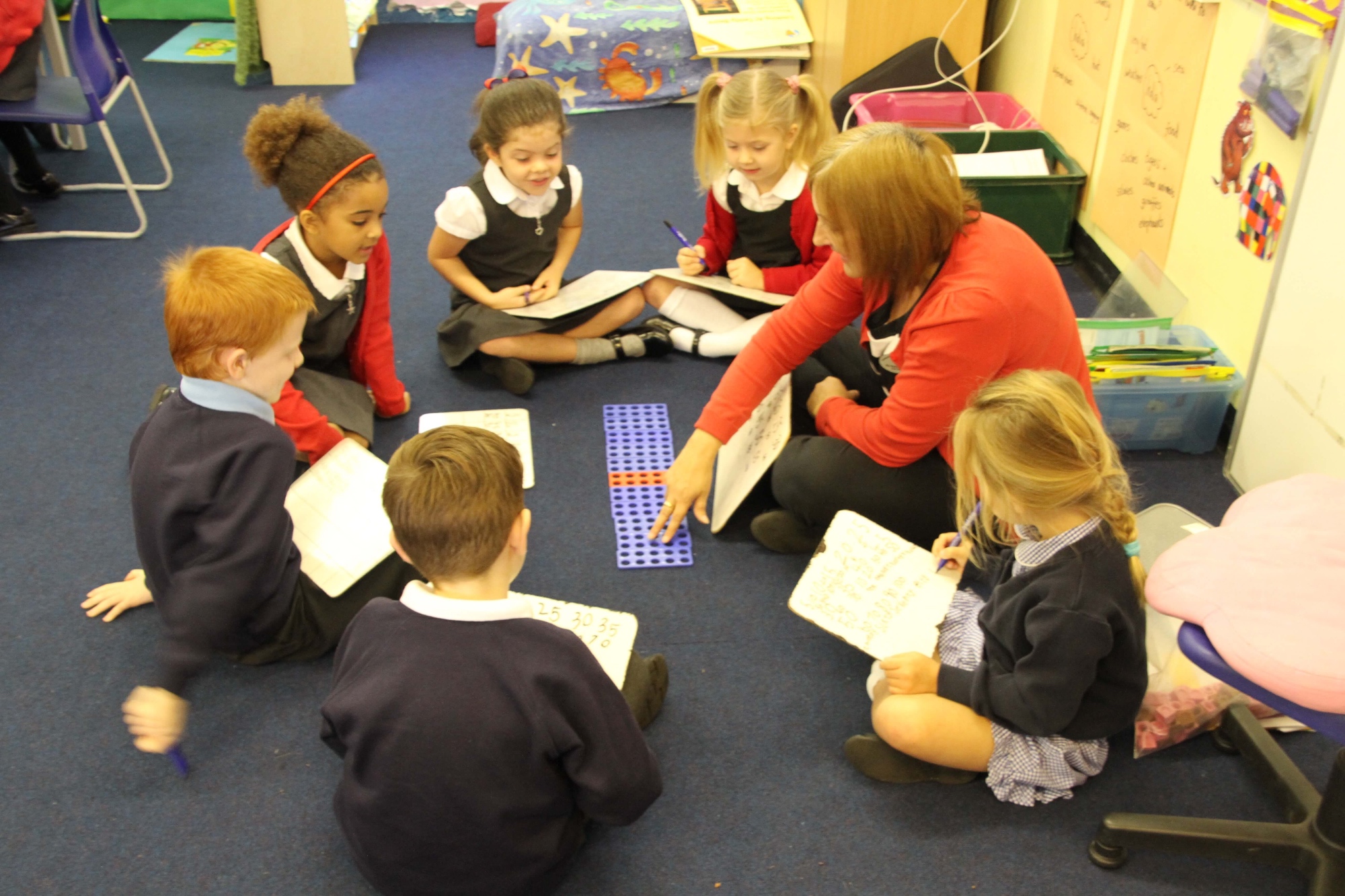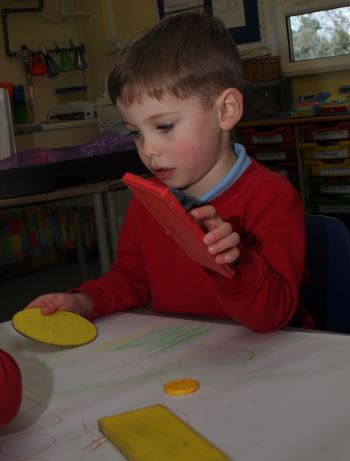Maths
The Intent, implementation and Impact of our Curriculum – Mathematics
 At Fawbert and Barnard’s Primary School, we believe that children should be able to select which mathematical approach is most effective in different scenarios. Following the mastery approach, we ensure all children are able to solve various real life problems by applying the skills they have learnt during the time they are at our school.
At Fawbert and Barnard’s Primary School, we believe that children should be able to select which mathematical approach is most effective in different scenarios. Following the mastery approach, we ensure all children are able to solve various real life problems by applying the skills they have learnt during the time they are at our school.
Intent:
All pupils can achieve in Mathematics! There is no such thing as a ‘Maths person’, that is the belief that some pupils can do Maths and others cannot. A typical Maths lesson will provide the opportunity for all children, regardless of their ability, to work through fluency, reasoning and problem-solving activities.
Maths is a journey and long-term goal, achieved through exploration, clarification, practice and application over time. At each stage of learning, children should be able to demonstrate a deep, conceptual understanding of the topic and be able to build on this over time.
There are 3 levels of learning:
- Shallow learning: surface, temporary, often lost
- Deep learning: it sticks, can be recalled and used
- Deepest learning: can be transferred and applied in different contexts
The deep and deepest levels are what we are aiming for by teaching Maths using the Mastery approach.
We intend to do this by:
- Ensuring our children have access to a high-quality Maths curriculum that is both challenging and enjoyable.
- Providing our children with a variety of mathematical opportunities, which will enable them to make the connections in learning needed to enjoy greater depth in learning.
- Ensuring children are confident mathematicians who are not afraid to take risks.
- Fully develop independent learners with inquisitive minds who have secure mathematical foundations and an interest in self-improvement
- Challenge children to try new concepts and teach resilience when we are unable to solve a problem first time round.
Implementation:
Our implementation is developed through secure understanding of the curriculum and subject area.
Curriculum map
Blending the National Curriculum Programmes of Study, the ready to progress criteria (created by the DFE) alongside the White Rose Maths Hub planning exemplification and the Power Maths scheme, we have created In our curriculum maps and progression documents that allow children to recall prior knowledge and reinforce the understanding and to deepen their understanding enabling them to apply new knowledge to different scenarios. Our progression document is based on recapping all strands of learning throughout the year numerous times in order to improve long term memory. With the use of accurate and progressive questioning, mini quizzes, end of unit checks and additional daily Maths meetings, children are able to recap and reinforce their understanding.
What you will typically see:
- The large majority of our pupils progress through the curriculum content at the same pace. Differentiation is achieved by emphasising deep knowledge and through individual support with pre-teaching and rapid intervention.
- Practice and consolidation play a central role. Carefully designed conceptual and procedural variation in the planning of resources builds fluency and understanding of underlying mathematical concepts in tandem.
- Teachers use precise questioning in class to test conceptual and procedural knowledge and assess pupils regularly to identify those requiring intervention so that all pupils keep up.
- Teachers will use the concrete, pictorial and abstract approach (CPA) to ensure that procedural and conceptual understanding are developed simultaneously.
- Emphasis placed on ‘learning’ through reasoning, developing multiple strategies and concepts towards understanding.
- Challenge for pupils grasping concepts quickly is provided through depth and breadth of experience.
- Daily opportunities to reason and problem solve.
- Recap quizzes of previous learning
- Mental arithmetic and strategies to deal with different types of questions in a simplistic way
- Use of Mastery of Number, White Rose and NECTM resources across the school.
- Spiral curriculum to embed, recall and reinforce knowledge to the long-term memory
- Teachers will informally assess pupils using pre-assessment and end of unit assessments.
EYFS Mathematics
Developing a strong grounding in number is essential so that all children develop the necessary building blocks to excel mathematically. Children should be able to count confidently, develop a deep understanding of the numbers to 10, the relationships between them and the patterns within those numbers. By providing frequent and varied opportunities to build and apply this understanding - such as using manipulatives, including small pebbles and tens frames for organising counting - children will develop a secure base of knowledge and vocabulary from which mastery of mathematics is built. In addition, it is important that the curriculum includes rich opportunities for children to develop their spatial reasoning skills across all areas of mathematics including shape, space and measures. It is important that children develop positive attitudes and interests in mathematics, look for patterns and relationships, spot connections, ‘have a go’, talk to adults and peers about what they notice and not be afraid to make mistakes.
ELG: Number
Children at the expected level of development will:
- Have a deep understanding of number to 10, including the composition of each number;
- Subitise (recognise quantities without counting) up to 5;
- Automatically recall (without reference to rhymes, counting or other aids) number bonds up to 5 (including subtraction facts) and some number bonds to 10, including double facts.
ELG: Numerical Patterns 
Children at the expected level of development will:
- Verbally count beyond 20, recognising the pattern of the counting system;
- Compare quantities up to 10 in different contexts, recognising when one quantity is greater than, less than or the same as the other quantity;
- Explore and represent patterns within numbers up to 10, including evens and odds, double facts and how quantities can be distributed equally.
EYFS will be following the White Rose Maths scheme of learning taking using supplements from the Maths Hub and NCETM as additional activities. Please see the the scheme of learning here.
Impact:
We want every child to leave Fawbert and Barnard’s primary school with a can-do attitude towards Maths. We want them to have the fundamental skills so that they could be asked numerous questions and have the strategies to be able to solve the given problem. Additionally, we want children to build up resilience so that they continue to have a go at solving problems no matter how challenging they may seem at first.
We would expect children to have:
- Quick recall of facts and procedures
- The flexibility and fluidity to move between different contexts and representations of mathematics.
- The ability to recognise relationships and make connections in mathematics
- Able to apply their knowledge in various scenarios in and out of the classroom choosing the most efficient methods for the problem
- Being reflective on their strengths and understand where they need to focus on in order to build facts and key strategies.

